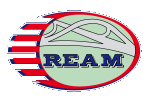Report on technical visit to Bangkok, Thailand
REAM’s technical study delegation was hosted by the Department of Highways, Thailand (DOH) and Road Association of Thailand (RATh).
The REAM delegation led by the Director General of Public Works Department, Malaysia (PWD) and President of REAM Dato’ Seri Ir. Haji Mohamad Zulkefly bin Sulaiman, who was also the head of delegation included among others, senior officers from the Ministry of Works, Malaysia (MOW), PWD, Malaysian Highway Authority (MHA), Construction Industry Development Board (CIDB), Malaysian Rubber Board (MRB), road and maintenance concessionaires and road industry stakeholders comprising consultants, contractors and suppliers.
The delegation was welcomed by the hosts comprising the Director General of DOH Mr. Sarawut Songsivilai, the President of RATh Mr. Aram Kornsombut and their respective senior officers.
Objective
The main objective of this technical visit, among others, was towards sharing of knowledge and experiences related to the implementation of natural rubber modified asphalt in the development of road infrastructure and to pave the way for future collaboration, interaction and networking between the road engineering fraternity of Malaysia and Thailand.
Meeting and briefing sessions
The visit officially commenced with a meeting and briefing session on 4 July at the DOH head office attended by the REAM delegates and senior officers from DOH and RATh. Mr. Sarawut Songsivilai welcomed the REAM delegation on behalf of DOH and RATh. Dato’ Seri Ir. Haji Mohamad Zulkefly bin Sulaiman, responded by extending his appreciation to DOH and RATh for hosting the visit.
In continuing his address, Dato’ Seri Ir. Haji Mohamad Zulkefly bin Sulaiman highlighted PWD’s involvement in the use of alternative materials in road maintenance including natural rubber. He also touched on the performance and direction of technology and the application of rubber-based materials, especially in pavement engineering.
Dato’ Seri Ir. Haji Mohamad Zulkefly bin Sulaiman took the opportunity to propose an official Memorandum of Understanding (MoU) between REAM and RATh to further cement the existing cooperation and collaboration among the road industry stakeholders in Thailand and Malaysia in the areas of road and transportation engineering.
The representatives from DOH and RATh explained that the use of additives in asphalt is to extend the pavement-lifespan with maintenance-free usage for some 10 years after construction. They added that particular attention is given to the volume of heavy vehicles that exceed the load limit, in addition to the use of new technologies that need to be balanced with the financial allocation available.
The presenters maintained that the main objective of using natural rubber as an asphalt additive in Thailand is to stimulate the price of rubber in an effort to assist local rubber planters. The use of natural rubber in the mix of asphalt materials is better in performance than conventional materials resulting in an increase in life cycle by 20% - 30%, albeit at a moderate level compared to other additives such as fibre and polymer. Having said that, the cost of asphalt modified with natural rubber is 30% higher than the conventional material and natural rubber as an organic material has less durability, compared to synthetic materials that have longer durability.
The Thai counterparts also highlighted several collaborative joint venture projects between Malaysia and Thailand namely the Friendship Bridge across the Golok River between Buketa and Bukit Bunga, the Second Golok River - Rantau Panjang bridge project, the bridge connecting Tak Bai with Kubor Base and the link project between Satun and Perlis.
Meeting/Briefing at DOH
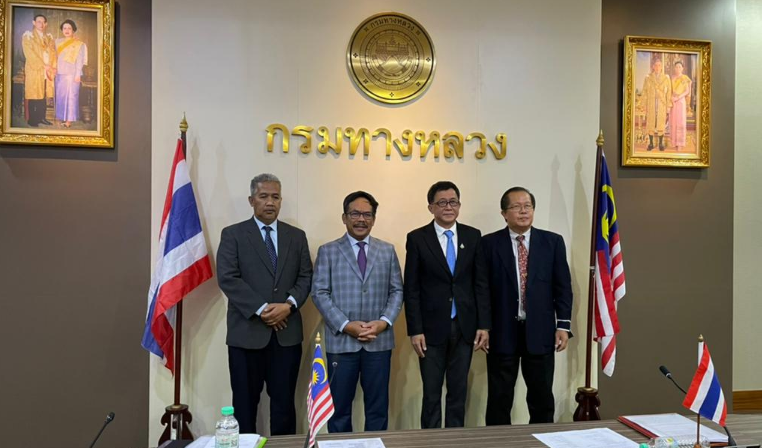
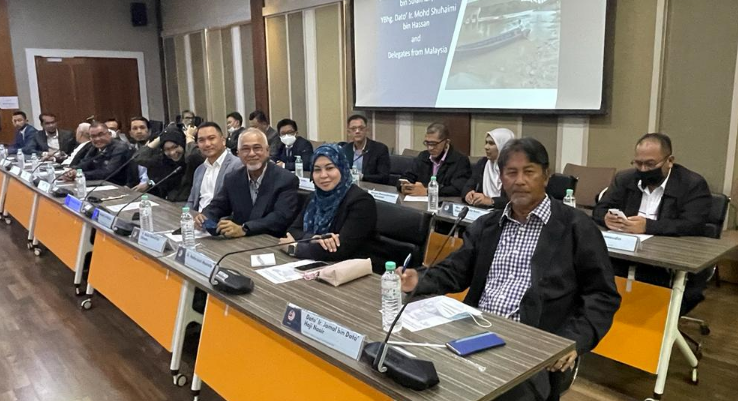
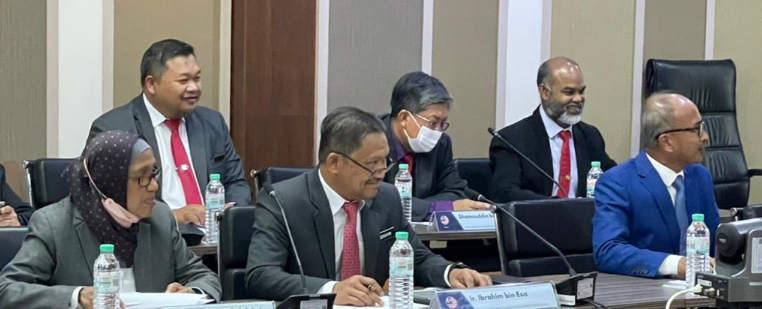
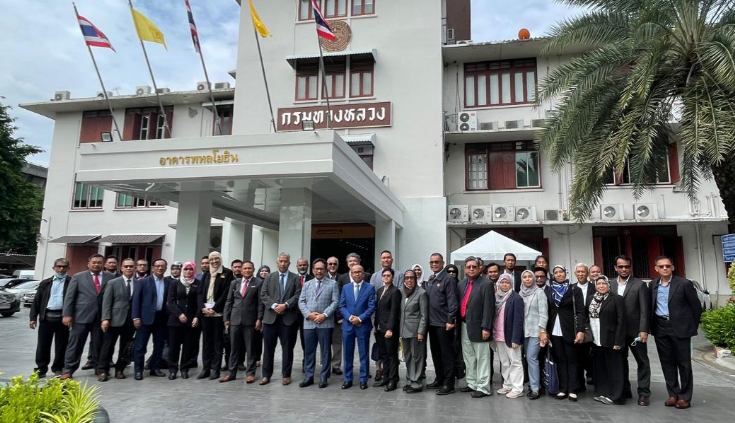
Site visits
A Visit to the Traffic Control Centre (M-Flow)
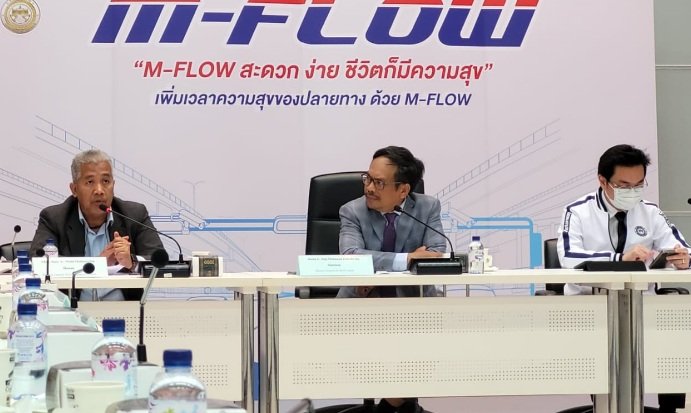
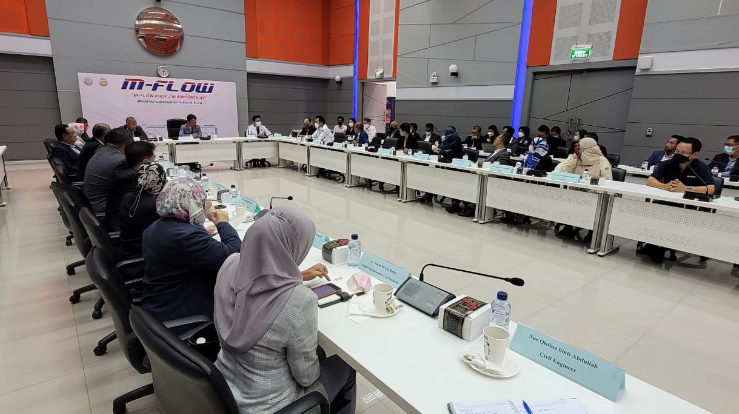
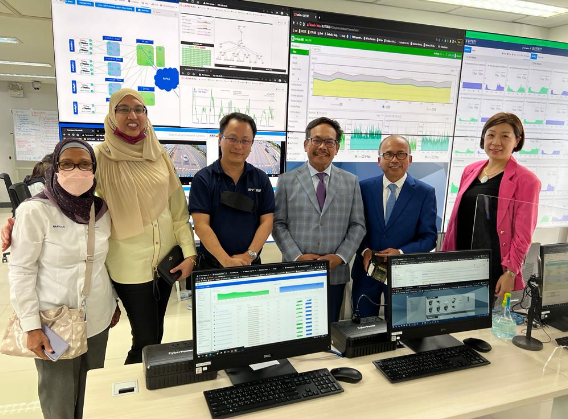
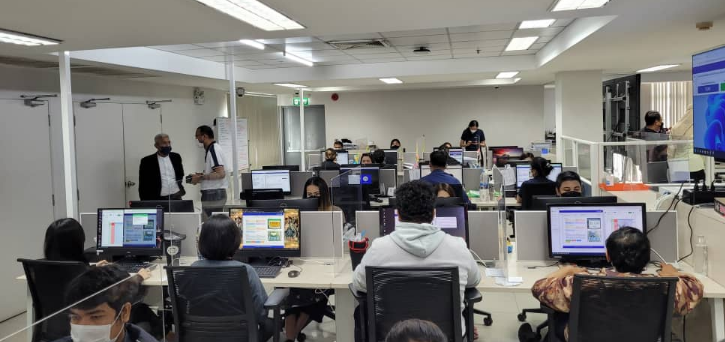
Following the briefing and lunch, the delegation was taken on study tour to the free flow system (M-Flow) with a visit to the Traffic Control Center and the CCB Lab at Krabang Motorway.
The tour commenced with a briefing on the M-Flow system implemented in Thailand since February 2022 at several highway networks. In the briefing session, the Director General of Malaysian Highway Authority Dato' Ir. Mohd Shuhaimi bin Hassan touched on the proposal to initiate a similar system in Malaysia. The delegation was then taken on a tour of the Traffic Control Center and briefed on the role and functions of each section.
The implementation of the free flow system requires specific and in-depth studies and research to ensure the commissioned system functions without hitches resulting in the envisaged positive impact in reducing congestion on the highways.
Central Lab
This visit was held the following day on 5 July to get an insight on the conducting of tests related to the use of natural rubber in road construction technology.
The briefing by the officers centred on the technology, research output and performance of the materials used. As discussed during the meeting a day earlier, the resulting performance on usage of natural rubber in the mixture of asphalt materials is better than conventional materials but will be at a moderate level compared to other additives such as fibre and polymer.
The delegation then visited the material testing laboratory which is divided into two sections, namely the asphalt material testing laboratory and the mixture design preparation laboratory. It was noted that the equipment used for the tests is also used in Malaysia, particularly at the Centre for Engineering and Technology Excellence (CREaTE).
A Visit to the Central Lab
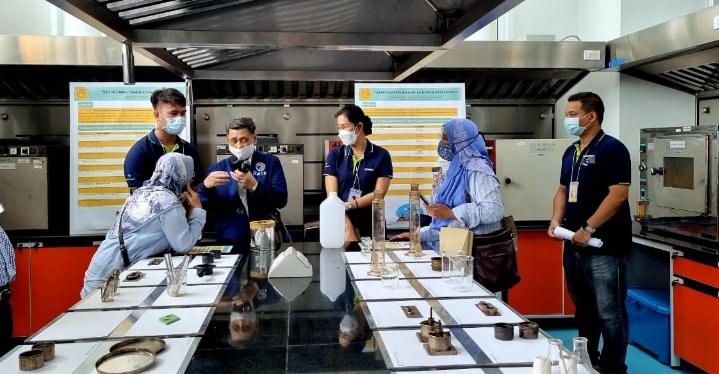
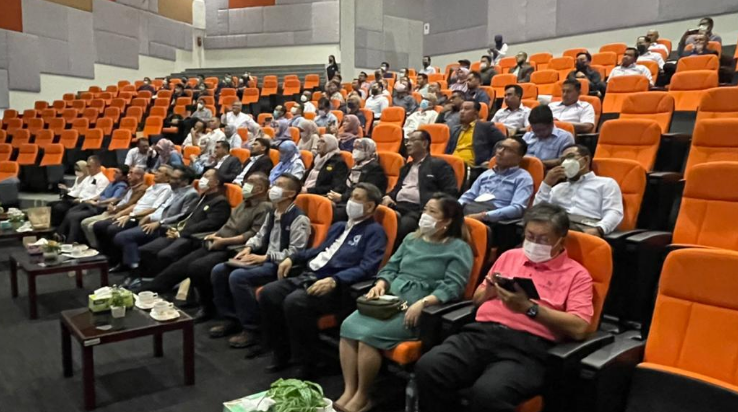
CONCLUSION
This enlightening study tour brought about the following conclusions:
i. Formulation of policy by the government is pivotal in determining the use of additive/alternative materials in the mix of building materials/road maintenance.
ii. Giving exposure to the use and methods for determining the performance of natural rubber in construction technology.
iii. Performance of paving materials based on natural rubber is at a moderate level compared to the use of other additives.
iv. Implementation of a free flow system can have an effective impact on the Level of Service (LOS) on tolled highways.
